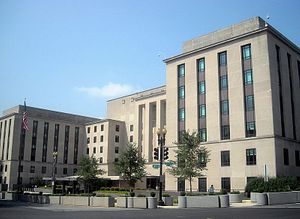U.S. Secretary of State Rex Tillerson’s services are no longer required, President Donald Trump has determined. Instead, Trump has chosen Mike Pompeo, currently the director of the Central Intelligence Agency, to succeed Tillerson, the former ExxonMobil executive, as America’s top diplomat.
What will Pompeo bring to the portfolio of secretary of state and how might his approach matter for China?
At the core, Trump’s decision to elevate Pompeo is borne of personal compatibility. The president simply likes Mike better than Rex and said as much, noting that he and the outgoing secretary often came to the table with “different” mindsets on issues.
Pompeo, on the other hand, has long been a Trump loyalist – and loyalty finds reward in this administration.
As the person who delivered the president’s daily brief, Pompeo also got plenty of facetime with Trump. Those briefings ran the gamut of global issues, leaving Trump with the impression that Pompeo would be an adept candidate to run the state department.
But the skills that make a good diplomat are not learned overnight, as Tillerson learned the hard way. Pompeo’s willingness to politicise intelligence during his tenure at the CIA, too, showed that he holds political principles – and his own prospective political future – in too high regard.
For China, Pompeo will be something of a wild card. He has been complimentary of President Xi Jinping, stating last year before the 19th party congress that “President Xi will come out of this in a dominant position with incredible capacity to do good around the world.”
At the same time, earlier in 2017, Pompeo pegged China as the greatest threat to the United States. “I think China has the capacity to present the greatest rivalry to America of any of those over the medium and long term,” Pompeo said in an interview.
“If you look at them, they are probably trying either to steal our stuff, or make sure they can defeat it,” he said, echoing fairly conventional Republican talking points on China’s national security threats to the US.
So which is it?
To date, Pompeo appears to have been motivated by Trump’s impulses, serving as somewhat of an enabler. While his remit at CIA was, in theory, limited to providing impartial intelligence analysis with policy outside the scope of his office, he will now enter a position of great influence.
On China, Trump has consistently sung a different tune than the strategy documents his advisers released on his behalf in late 2017 and early 2018. The national security strategy and national defence strategy pegged China, alongside Russia, as a great power competitor, but Trump has lauded China’s help on the North Korean issue and even expressed his own admiration for Xi’s power consolidation.
Pompeo will follow Trump before he follows the strategic playbook to which this administration claims to adhere.
Outside trade policy, where the U.S. and China appear to be on a collision course, U.S. foreign policy is likely to remain non-confrontational in a bilateral context with China.
And in the new secretary, Pompeo’s interlocutors in Beijing – Foreign Minister Wang Yi and occasionally State Councillor Yang Jiechi – will find a more useful conduit to Trump than Tillerson ever was.
None of this means that Pompeo can’t cause a headache for China indirectly, however.
He is likely to reinforce Trump’s worst instincts on the Iran nuclear agreement, for example – a pact that China has long supported. An end to that agreement could throw the Middle East into disarray, negatively affecting Chinese interests and energy security.
Elsewhere, however, Pompeo may find himself a few pet projects. As a lawmaker, he introduced a bill to call on China to cease its land reclamation and the militarisation of disputed features in the Spratly and Paracel groups in the South China Sea.
He may choose to re-elevate the South China Sea – something that has largely fallen under the U.S. Pacific Command’s portfolio in this administration – in the State Department’s East Asia agenda.
For now, China should presume that however Trump blows, so will Pompeo.
While the state department under Tillerson drifted further and further away from the White House, we may see a reversal under Pompeo, giving American diplomacy more of a role in enacting the Trump administration’s agenda.
This article first appeared in the South China Morning Post. It is republished here with kind permission.

































